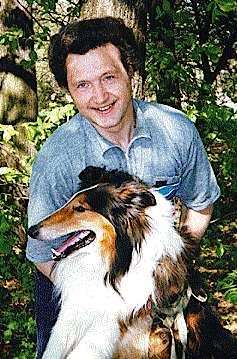 Back
BackI am a Professor of Computer Science and Cognitive Science at the Department of Information Technologies, K.E.Tsiolkovsky Russian State Technological University, Moscow.
I am also affiliated with the Department of Mathematical Methods and Programming for Information Processing and Control Systems, Moscow State Institute of Electronics and Mathematics, and with the Department of Discrete Mathematics, Faculty of Mechanics and Mathematics, M.V.Lomonosov Moscow State University.
My scientific interests include theory of formal languages and mathematical linguistics, theory and design of natural-language-processing systems, knowledge bases, communication in multi-agent systems, logic-informational foundations of electronic commerce, cognitive aspects of consciousness development and knowledge transfer, cognitive linguistics, education theory, intelligent tutoring systems.
I developed in the 1980s – 1990s an original approach to formal studying semantics and pragmatics of natural language (NL) and to the design of NL-processing systems. It is called Integral Formal Semantics (IFS) of NL.
The central part of IFS is the Theory of K-calculuses and K-languages (knowledge calculuses and languages), or the KCL-theory. This theory provided the convenient means of mathematical describing:
| (a) | structured meanings (SMs) of arbitrarily complicated sentences and discourses in NL (including SMs of articles, technical patents, business and legal documents, textbooks, etc.); |
| (b) | various aspects of NL-dialogue between intelligent systems; |
| (c) | goals of intelligent systems and their knowledge about the world; |
| (d) | arbitrarily complicated algorithms. |
The basic work on the KCL-theory is my monograph “Representing Information by Means of K-calculuses” published in Moscow in 1988 (in Russian). It became the source of ideas for extending the KCL-theory in a number of my papers published in English in the nineties.
By the moment, a large successful experience of applying ideas of IFS (first of all, of the KCL-theory) to the design of NL-processing systems has been accumulated.
Me and my spouse, Dr. Olga S. Fomichova (Fomitcheva), elaborated a new theory of effective knowledge transfer. It is called the Theory of Dynamic Conceptual Mappings (the DCM-theory).
The central component of the DCM-theory is an informational-cybernetic conception of positive developing intelligence (the thinking and mental outlook) of young children and teenagers. That conception underlies our new methods of teaching and up-bringing called the Methods of Emotional-Imaginative Teaching. These methods have been successfully tested during 8 years in Moscow in teaching foreign language (on the example of English), literature, poetry, the language of painting to more than three hundred young children and teenagers at the age from 4 to 17.
On the other hand, the DCM-theory suggests a number of new ideas and methods concerning the preparation of teachers.
An impulse to the creation of the DCM-theory was given by the ideas of the theory of NL-processing systems and of the frame theory – the components of the Artificial Intelligence theory. The further development has been stimulated by ideas of Semiotics, Cognitive Linguistics, and Cognitive Psychology.

